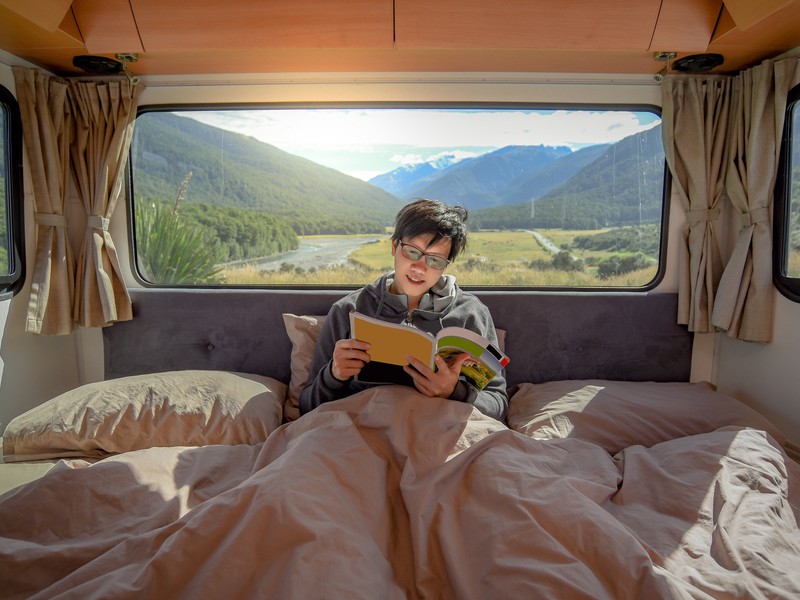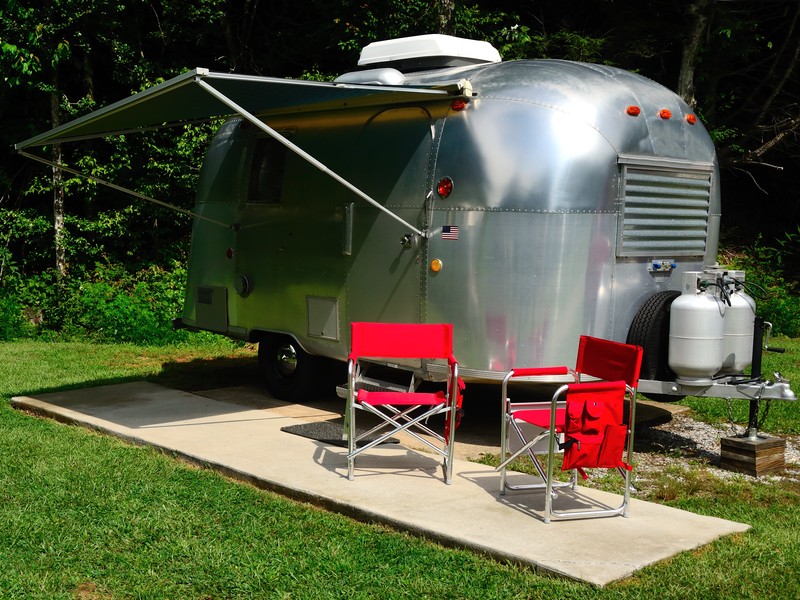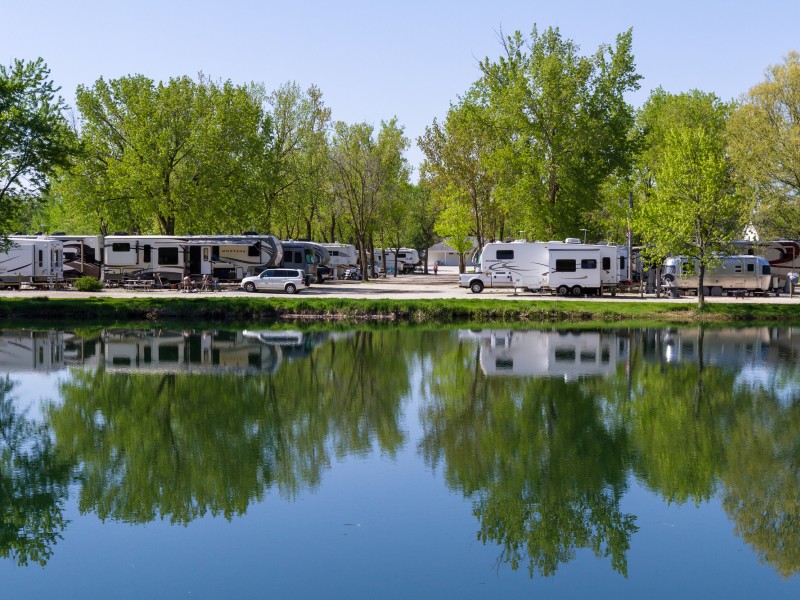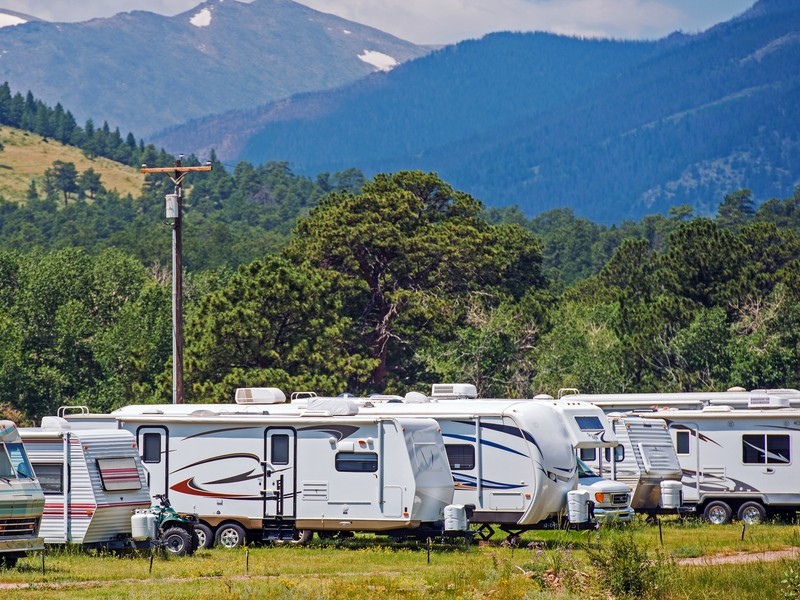Do you plan to travel as a family and need a Guide To Home Schooling In An RV? With RVing interest at an all-time high, finding a way to keep kids learning while on the road is the only way to ensure they won’t fall behind on their education. Luckily, there are great “road schooling” curriculums available for parents, and we gathered them in one place to make your planning easier.
In this guide, we cover the best educational resources for kids in grades K-12, plus include supply lists and tips on how to incorporate your travel destinations into unique hands-on learning experiences.
Homeschooling in an RV is not only achievable, but it offers kids a way to thrive in their learning. So, please read our comprehensive guide to RV homeschooling and start planning a new life full of family adventures that keep kids’ educational needs current.
Is Homeschooling in an RV Popular?
Roadschooling is the term RVers use for teaching their kids while they travel in an RV. RV homeschooling was once a rare occurrence, but now around 1/3rd of RVers teach their kids while on the road.
Some families travel full-time in an RV, while others plan a year-long or extended trip that requires keeping kids up-to-date with their schooling outside of a private or public school.
With the current worldwide health crisis changing the way schools and workplaces handle telecommuting or homeschooling via the computer, the level of RV schooling will rise as it’s easier to fit into our modern educational system.
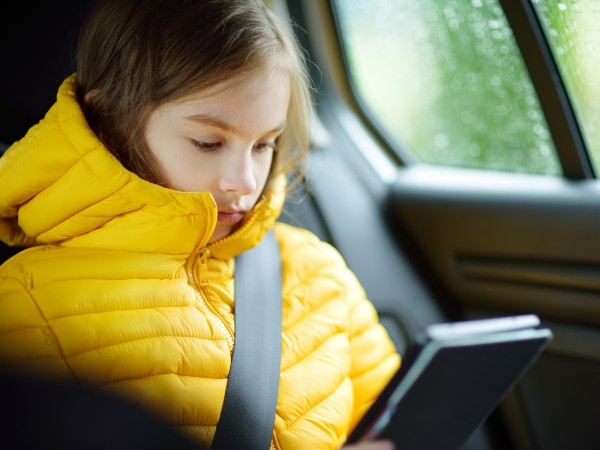
Parents who road school find they can tailor each child’s learning strengths into a separate learning program, such as giving one kid more hands-on experiences. At the same time, others may prefer to see and explore historical or natural sites and read more on the subject on their own.
Parents also love setting a suitable schooling structure and pace, allowing for spur-of-the-moment visits to interesting or fun places without the stress of regimented school-time hours.
Lastly, it seems kids who go to school while traveling in an RV are very well-rounded between visiting new locations, working as a family team to keep the RV in good working order, conversing with adults, and making friends with other RVing kids. In addition, the freedom to explore a wide range of experiences lets kids learn in an organic way that helps them better retain their lessons.
This is why a guide to homeschooling in an RV is very useful.
Things to Consider About RV Homeschool Curriculums
Know the State Homeschooling Laws
If you want to homeschool in your RV, be aware that each state has specific at-home learning laws on how you record and report your child’s learning. So a Guide to homeschooling in an RV is worth wild here.
If you plan to drive across many US states on your travels, it pays to find a national homeschooling program that takes into account all the various state education laws.
In general, kids must attend some form of school or learning program until they are 16 years old. Some states require testing for kids to pass onto another grade level, while others are much more lax.
Parents have a legal right to teach their children without having any teaching credentials, which gives them plenty of freedom to handle learning however they wish.
However, you need to keep track of your kid’s progress and find ways to supplement learning in areas that aren’t your strong suit, especially in subjects like math or science that quickly become more intense in the upper grades.
Choose the Right State of Residency
All RVers will have a state-of-home residency, even if they travel full-time and do not own property or have a home. However, the laws indicate that all RV families will need to find a state-approved homeschooling program to keep track of their children’s educational progress.
If you aren’t RVing from a home base you plan to return to often; you can scout the laws of the more common RV residency states to find one with schooling laws you like. In addition, states such as Texas, Florida, and South Dakota have RV mailbox services you can use as a permanent address.
We hear from road schooling parents that it’s much easier to handle RV school coursework if you select a state with more lenient rules, so you can “go with the flow” and take in learning opportunities at your own pace.
States like Texas don’t make parents report any homeschool data for coursework or attendance, but you’ll still want to keep personal records of accomplishments. Florida
only requires quarterly reporting of attendance and coursework, while some other states may require a monthly update of learning status.
Consider your Parental Teaching Style
Before choosing a homeschool program for your child, look at your parenting style and how much effort you want to put into the learning process.
We see parents with older children who let the kids set their own pace and may only check on progress once a month. However, on the other side, we’ve also seen parents who set rigorous school hours each day, follow workbooks, and regularly send in online coursework and reports. To help these parents, a Guide to homeschooling in an RV makes it much easier!
How disciplined you want to be while roadschooling is up to you, but find a homeschool curriculum that fits your teaching style to avoid frustration for both you and your children.
Will Your Children Be Re-enrolling in a Traditional School?
Homeschooling guide in an RV can go so well that you never put your child back into a traditional school setting, or it can not work out, and you’re back in a house or apartment, putting your kids in a private or public school.
RV homeschooling parents say it’s best always to assume your child will be going back to a traditional school and keep up-to-date records of learning milestones and tests to make the transition much more straightforward.
With the expansion of online K-12 school courses across the US due to the latest health crisis, it’s much easier for parents to submit the necessary documents or to request grade-level tests for their kids to document their learning to the state.
How Is Your RV Internet Connectivity?
To complete most road school programs or testing, you’ll need a reliable internet connection, which can pose problems while on RV trips.
Most serious RV homeschool parents pay a monthly fee for a Mi-Fi or hotspot so kids can turn in schoolwork through the computer or tablet in real-time. However, you can opt to save coursework and send it in when you’re at a campground or location that offers free Wi-Fi access.
The Best RV Homeschool Curriculums
If homeschooling in an RV is on your agenda, check out these top homeschool programs that will keep you organized and your kids learning on track.
State Public School Homeschooling Programs
Before you spend too much effort or money finding an RV homeschool program, check with your state for free K-12 at-home school curriculums for parents, with many including a computer or tablet along with lesson plans to follow.
Since parents contribute tax dollars to support public state schools, you should have access to the same teaching materials offered to traditionally-enrolled students. You must register for the program and expect regular submission of class work, attendance, and tests.
Nationwide Private Home Schooling Programs
You can purchase private homeschooling programs to keep your kid’s learning on track while RVing. We highlight the homeschool programs parents give the highest ratings below.
A bonus of choosing a private program is you have more flexibility in how much time kids need to devote to coursework, with the option to switch to a new program if you feel it doesn’t fit into your RVing and teaching style.
Some homeschool courses are specific to historical or natural locations across the US, so your family can deepen their understanding of places you may visit on your travels.
Connections Academy

Connections Academy is a top choice for road schooling because both the courses and the supplies are free to parents, and it uses certified teachers, provides one-on-one help, offers clubs for kids to join, and is compatible with around 30 states at-home learning laws.
K12.com
K12.com offers both free and fee-based programs for public school curriculums. Kids can get help from teachers or tutors when they need help, but be aware that this program requires more consecutive online hours than other options.
Explore the Great Outdoors with Us!
Khan Academy
Khan Academy offers free online programs from kindergarten through 12th grade, with advanced placement courses for high schoolers. SAT prep classes are also available.
The guide gives lessons that get high marks for interest-grabbing topics and whole-learning programs that incorporate math, science, history, and more without kids noticing they are learning in an RV.
edX
edX is a wonderful resource for specific learning at the college level, that teens and adults will enjoy. You need to have this guide to home-schooling in an RV. Over 160 top colleges and universities, including MIT, Harvard, and Berkeley offer self-led or instructor-led classes that are no or low cost.
Many earned credits are transferrable to higher learning institutions if your child plans to attend college. However, be aware there’s a fee for each completion certification to save for your child’s records.
CK-12 Foundation
CK-12 is the program to look into if STEM courses are what you want for your children. The online curriculum keeps kids interested with games and interactive activities and includes everything you need to roadschool, such as textbooks, schedules, and digital access.
CK-12 covers each topic in-depth, and RVing parents of teenagers rave about the range of classes perfect for their age level and the convenient dashboard to track progress.
Time4Learning
Time4Learning has a monthly fee for each child but does provide parents with a full lesson plan to take the guesswork out of road schooling for grades K-12.
There are plenty of options for offline work completion, but most subjects don’t dive as deep as other programs. However, you must keep your account up-to-date to retain access to your kid’s records if you plan to enroll them in a traditional school system in the future.
National Park Online Lessons
For exciting options to learn more about historic sites around the US, the National Park Service has free lesson plans you can access. Search for lesson plans by state, time period, or themes such as Native American or African American history, archeology, Presidents, and much more.
Reciprocal Museum, Zoo, and Park Memberships
It’s easy and affordable to bring learning opportunities to life by enjoying visits to all the local zoos, museums, parks, and cultural programs in an area you are visiting while RVing. Reciprocal programs allow you free entrance to sister locations when you purchase a family membership to one location.

Roadschooling Supply List
Here is the main Guide to homeschooling in an RV supply list to get you ready for learning on the road:
- Tablet, laptop, or desktop computer plus a Wi-Fi connection
- Printer and ink (this is becoming less necessary)
- Notebooks, folders, pens, pencils
- Small chalkboard or dry-erase board
- Lesson plans, workbooks, worksheets
- Craft box with paints, brushes, markers, etc. for art projects
- Desk or dedicated space inside the RV to work comfortably
- Tracking notebook for testing and grade advancement
For more information about road schooling and to get support from other families doing the same thing, consider joining Fulltime Families. This community of traveling families provides in-person events for socialization opportunities and tons of peer-to-peer support and resources to help you navigate homeschooling while RVing, as well as other family-related topics.
RV Homeschooling Wrap Up
RVing as a family can include homeschooling programs that fit your camping style, so kids can keep up with their peers and learn no matter where you roam.
When you know what to expect when homeschooling in an RV, you can prepare for a full-time lifestyle or select a short-term program that will allow you to take an extended trip with your kids, then go back to a public or private school system without them falling behind.
Roadschooling is easier than ever, so take a look at all the opportunities above and create an RV homeschooling program that will keep kids happily learning and reduce parental stress!
Related Questions
- How can parents ensure they are complying with different state laws regarding homeschooling while traveling in an RV?
Parents can ensure they are complying with different state laws regarding homeschooling while traveling in an RV by researching and understanding the homeschooling laws of each state they plan to visit, as these laws can vary widely.
They should also consider establishing a legal domicile in a homeschool-friendly state, and follow the homeschooling requirements of that state, which can provide a consistent legal framework to follow.
- What factors should parents consider when choosing a homeschooling curriculum for their children while on the road?
When choosing a homeschooling curriculum for their children while on the road, parents should consider the flexibility of the curriculum to adapt to varying schedules and environments, and its ability to provide comprehensive education that aligns with their child’s learning style and pace.
Additionally, they should ensure the curriculum is portable, digitally accessible, and includes a variety of interactive and engaging learning materials to keep the child interested during travel.
- How can parents effectively balance travel experiences with educational requirements when homeschooling in an RV?
Parents can effectively balance travel experiences with educational requirements when homeschooling in an RV by integrating learning into their travel experiences, such as visiting historical sites, museums, and nature parks, and using these experiences as practical lessons.
Additionally, they can maintain a structured daily routine for formal education, using online resources and a homeschooling curriculum, ensuring that core educational requirements are met regardless of their travel schedule.
- What steps should parents take to ensure a smooth transition back to traditional school after a period of RV homeschooling?
Parents should first gradually reintroduce their children to a structured schedule similar to that of traditional school, including set times for studying, breaks, and extracurricular activities.
They should also maintain open communication with the school to understand the curriculum and expectations and provide emotional support to their children, addressing any concerns or anxieties about the transition.
- How can parents overcome potential challenges related to internet connectivity when homeschooling on the road?
Parents can overcome potential challenges related to internet connectivity when homeschooling on the road by investing in reliable mobile hotspots or satellite internet services, ensuring consistent access to online resources.
Additionally, planning ahead by downloading necessary materials and using offline educational apps can mitigate issues when the internet connection is unstable or unavailable.
"Of all the paths you take in life, make sure a few of them are dirt."
-- John Muir
